Mark Farner - Interview
by Lisa Torem
published: 4 / 12 / 2010
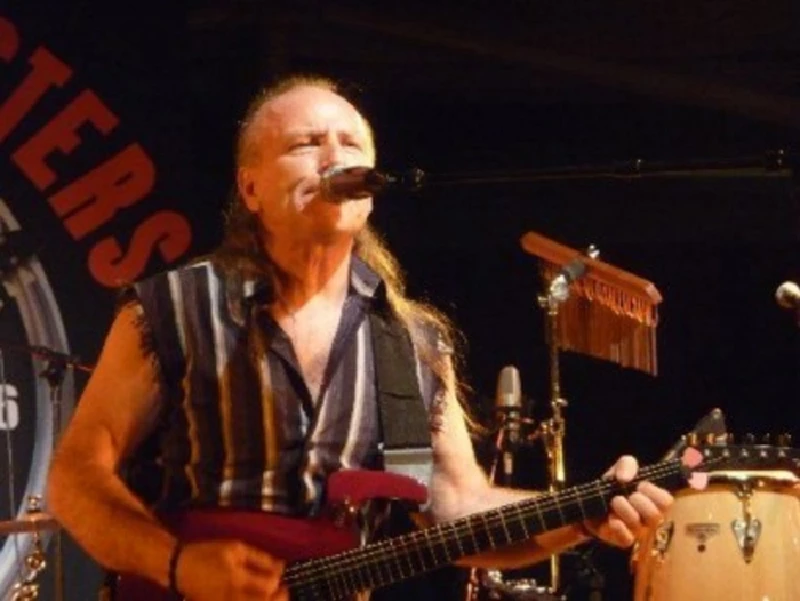
intro
Mark Farner is the former front man with Grand Funk Railroad. He speaks to Lisa Torem about his solo career and why he will never rejoin Grand Funk Railroad.
“The Rock Patriot” AKA Mark Farner has been challenged these days. His son Jesse suffered a fall and sustained a near-fatal fracture to a vertebra in his neck. More recently, his Parker Fly Guitar was swiped from his dressing room at the House of Blues in late November, 2010, hours after we had our conversation. Ironically, that same evening, Farner had autographed, along with other celebrity musicians, an electric guitar which was meant to raise money for Jesse’s medical care. Yet, despite setbacks, the outspoken vocalist, guitarist and songwriter, who spent decades recording and touring with Grand Funk Railroad, enjoys his fans and performing more than ever. I met him during his weekend appearance at the Rock and Roll Fantasy Camp, held in Chicago, November 19-21st. He looked excited as fans awaited his master class and a statement on his website summarised his eagerness: “I have the privilege of being one on one with all my fans, up-close and personal.” Using a hands-on and informal way of tackling subjects close to the hearts of the young fans, Farner described rampant changes in the music industry, played signature riffs and opened the floor up to questions; he has a natural, engaging way of speaking and easily opens up about his life’s work. Raised in the industrial Midwestern town of Flint, Michigan, by a single parent, Farner took to the guitar passionately. His early career included singing with Terry Knight and the Pack – eventually Farner took over after Knight departed. Later Knight managed Grand Funk Railroad which turned out to be a faulty business decision almost leading to the band’s early break-up. Farner, along with drummer Don Brewer and bassist Mel Schacher, the latter of whom was originally from Q Mark and the Mysterians ('96 Tears',1966), however, held on strongly. Their early collaborative energy has yielded awards: Grand Funk Railroad's 1969 first album, ‘On Time’ was certified gold shortly after its release. Their second release, 'Grand Funk' (1969) contained the Farner originals, ‘Mr. Limousine Driver’ and ‘Paranoid.’ It was their 1970 third album, ‘Closer to Home’ which contained their huge hit of the same name: ‘I’m Your Captain’ (Closer to Home) and ‘Mean Mistreater.’The band uniquely paralleled the Beatles by selling out Shea Stadium and in ’72 charted with ‘Rock and Roll Soul.’ Another triumph was ‘We’re an American Band’ which yielded the number one single, ‘Shinin’ On’ in 1974 and the smash hit ‘The Loco-Motion.’ That magical year also set into motion the catchy ‘Some Kind of Wonderful.’After the 1976 release, ‘Born to Die,’ produced by Frank Zappa, Farner went solo. ‘No Frills’ in ’198 was awash in Farner’s philosophies, political views and spirituality. The band reunited several times, but the chemistry had waned. 1981 ‘Grand Funk Lives’ and 1983's ‘What’s Funk?’ were their final recording efforts. But, their accomplishments were stunning: thirty million records, eleven studio albums, and two live were credited to their legacy. In ’96 the three founding members reunited for a two-year tour and produced live ‘Bosnia.’ Then, in 1999 the final derailment transpired. Ever since, fans have been urging the original band members to get back together. In 2006, Farner released, ‘For the People.’ The long-haired, muscular musician enjoys a happy marriage with his wife Lesia and three sons. Pursuits such as fishing and hunting remain part of his everyday life. Farner is also heavily involved in charity work and in supporting the efforts of American soldiers. “I don’t know if you believe in praying, but this party tonight is for the troops,” he says proudly, performing live later that night. As he skated across the floor and sang some soulful lyrics, a blonde woman whispered to me, “I waited 35 years to see Mark Farner live.” PB: Hi Mark. Can you explain your experience with being a counsellor at Chicago’s first Rock and Roll Fantasy Camp this year? MF: My campers have all got talent. They have their own bands that they play with and, like a guy said, "It’s not a garage band, it’s a basement band. We play down in my basement." But, it’s cool that they get together every week and make the effort and they do it, you know; keeping it alive and I’m finding a lot of talent in the campers and I was pleasantly surprised. I did the very first Fantasy camp in Miami, way back when. It was about 13 years ago or maybe longer than that (Laughs). Time is kind of slipping…It’s evolved into what it is from the very first camp and the desire for people to want to come and hang with us is going to be there. People who love rock and roll want to know what makes us tick, what makes musicians tick. They got pictures. I talked with the people there who had posters on their bedroom wall bigger than life, Grand Funk and Mark Farner. It’s something fulfilling to just be at my guitar class there. A little while ago, be in a room and have me play a lick that they’ve been trying to get, you know, trying to figure it out and then I show them what that lick is because my chords are not necessarily out of a book (Laughs). I never looked at a book. They’re felt chords and that’s part of my signature as a guitar player, something that’s come from within me and I’m not trying to copy somebody’s style or chord. I’m trying to use what I have for input to come up with original music myself and I’m trying to encourage the campers to do the same thing, to find that within themselves because I think we all have it and we look to others for something that’s inside of us, but we need to have a little incentive, somebody to mark the trails for us (Laughs) and send us on our merry way. PB: What makes you come back? MF: Like as a special guest? I’ve done that, too, as a special guest. Ten bands, twelve bands, just jam with them all in their room, but for counsellor, what brings me back is the satisfaction that I receive and I don’t get any other way than to interact with a fan who is citing the first time that they heard a song that I wrote. PB: Could you explain the process of writing one of Grand Funk Railroad’s biggest hits, ‘Closer to Home?’ MF: I remember a Vietnam veteran telling me that he’s in the fox hole and he’s hearing ‘Closer to Home’ and they’re blasting it. He’s down there with bullets flying over his head and he wants to be “closer to home.” That song did touch the hearts of veterans. It still touches the hearts of our veterans today and the troops that are in Iraq and in Afghanistan and some of the boys that come home. They say that song is played just as much today within the ranks of the Army and the Armed Forces as it was, back in the day, when I penned that song. It was the first song I wrote lyrics first. Everything prior to that came out of a jam. I would find some chords and a nice rhythm thing and I would write a song from that, be inspired to write, but this time I went to sleep. I said my prayers, “Now I lay me down to sleep” and I put a p.s. on the end of my prayer and I asked God to give me a song that would reach the hearts of people and I got up in the middle of the night and I wrote this song, but I’m always writing songs. I didn’t know this one. I write songs and I write poems just to get it out of my head, get it down to clear it for something else, but when I got up in the morning, I grabbed my flat top guitar and I’m in the kitchen. I’ve got my coffee, I’m looking out, from the pasture at my horses and I started playing this: “badada, bababa…” and it just started coming. That’s why I said, "Maybe those words that I wrote down last night. Maybe those words will fit this music" and there it was. I brought the words in,set it down next to the coffee on the table and I just started doing, “Everybody listen to me” (Farner sings the first few lines). That’s how it came out. The song was just formed in my kitchen. I took it to rehearsal that day. Then the guys said, "Man, this song’s a hit." I said, "Thanks, I hope you’re right." PB: Mark, can you sense when a song is a hit right away? MF: I’d like to think I do (Laughs). But, no one knows, really. If your heart and soul is in it, it’s a hit to you. You just hope people can embrace it with the same emotions that you have. PB: I interviewed Don Brewer for Pennyblackmusic and a number of fans commented that they’d love to see Grand Funk get united for a concert series. Would you consider that? MF: Well, I didn’t leave. I’ve been trying to put the band back together. Don Brewer doesn’t want the band to be put back together because that would take away from the spotlight being on him and the rub is between Don Brewer and myself, but I forgive those guys. You know, I don’t hold any unforgiveness because that would take power, my power, and I’m not going to give up my power. My power’s going to go in a positive direction. It is my intention; I’m not going to react to something like that. I don’t have to. That’s somebody else’s drama, but I feel sorry for the fans because I’m a fan who wanted to see the Beatles get back together. I figured, man (laughs), you guys are missing it. There’s all these fans that want to see you back, but, now I understand. It’s like when a band breaks up; it’s like people getting a divorce. How hard would it be to get those two people back together? I mean those people will never get back together. Hurting people hurt people. People that are hurting are the ones who hurt others. Somehow I think they think it helps them feel better that somebody else is hurting, too. They’re not the only ones. I don’t know what that is. But, I don’t even want to because where I’m at, I’m going to do what I do and I’m going to do the best I can and then I’m going to write more songs. I’m going to sing from the love in me and I’m going to glorify that that is in me. That’s not about hate or anything else but, like I said, I tried to put the band back together. When Capitol Records came out with a DVD of 'Bosnia' and some of the Shea Stadium footage was on a DVD and there was a CD companion release and I went to California. I sat in front of all of the execs in the Capitol Tower and I said, you guys will have to go to those guys because if I go to them they’re not even going to hear me. You, the record company, go and tell them I want to come back and do Grand Funk with them and let’s promote this the way we should. At that meeting, some of the execs said, "Yeah, if they’ll do this we’ll put the money beside you, the money we put behind the Beach Boys who had this huge reunion and a repackaging" and you know it was a rebirthing to a lot of fans and we could have had that same concentration, that same money behind us and the same big company, but the other guys turned it down. You know, it’s not wise I don’t think, but… I’m just a guitar player in a band that wrote 90% of that music. PB: You’re a self-taught musician, Mark. MF: Yeah, I’m self-taught. But, I learned from other guys. I mean, they taught me. I watched somebody make a chord. That guy taught me how to make that chord I was just aware enough to go home and go, “Oh, that’s how you do it” and I’d watch their hands and I’d make my hands do that, "Oh, okay"’ and then come up with my own chords. You know, showing some of them (referring to “campers” at the Rock and Roll Fantasy Camp master guitar class), in my guitar class, today, the chords that people asked me, "What is that chord?’ I don’t know the name of it but it’s like this" (Laughs). And so, I’m able to impact that to them and give them a little step to go on. PB: What are the most common questions young musicians ask you? MF: For guitar players, it’s those kinds of chords How did you do that? Did you drop ‘D’? What did you do? What was the tuning on that? And, also, the stop boxes that I use for my effects; a lot of them are from the 70s or modified stuff that I do for Robert Keely, in Oklahoma City, who is a guitar boutique dude. He’s a player, so if I call Robert and I say, "Listen, I like the fuzz face, but it doesn’t have enough mids or something", he’ll put a mid knob on the side of one and send it to me. "Here, put as much as you want." You know, because he understands and to convey that to these young guys that are going, "Oh, maybe I should get hold of Robert Keely because I got some questions and there’s something my effect has not given me, but I’m almost there with it", those kind of things I like to impart that so I can give them the hope of getting that because I was after a certain sound. I’m always after a certain sound. I’m always after a certain sound with my rig and if I can help them attain that or head them in the right direction to know where to go and what move to make next, I feel like I’m doing my job. But, in the class, in guitar class, it’s mostly those kinds of questions. And, of course, my experience being on the road for so many years as I have, I’ve been with a lot of other bands, a lot of other guitar players, that showed me chords and I’m able to give those people the power ‘G’ and the power ‘F’ and being in a three piece band I had to stay playing all the time. If the guitar dropped out, it was like, "Oh, what happened?" (Laughs). It’s not like being in a band with two guitars or a keyboard where something’s always going. That’s the kind of question that guys in a three piece band go: "Oh, okay,” and, like those two young guys that were at our front table, at our class today – for them to find out I didn’t have a volume control on my guitar, it was like, ‘"What?" (Laughs). "What do you think - that thing is wired wide open?" (Laughs). Yeah, the tenuator just takes away from what it is? I have a volume pedal. It’s one of those things I’ve used right from the get go. PB: What do you look forward to when you’re not performing or teaching, Mark? What is your idea of a perfect evening? MF: A perfect evening would be my arm around my wife of 32 years and, as long as she’s by me, it’s perfect. PB: Thank you.
Band Links:-
http://www.markfarner.com/https://www.facebook.com/Mark-Farner-113234608777984/
Picture Gallery:-
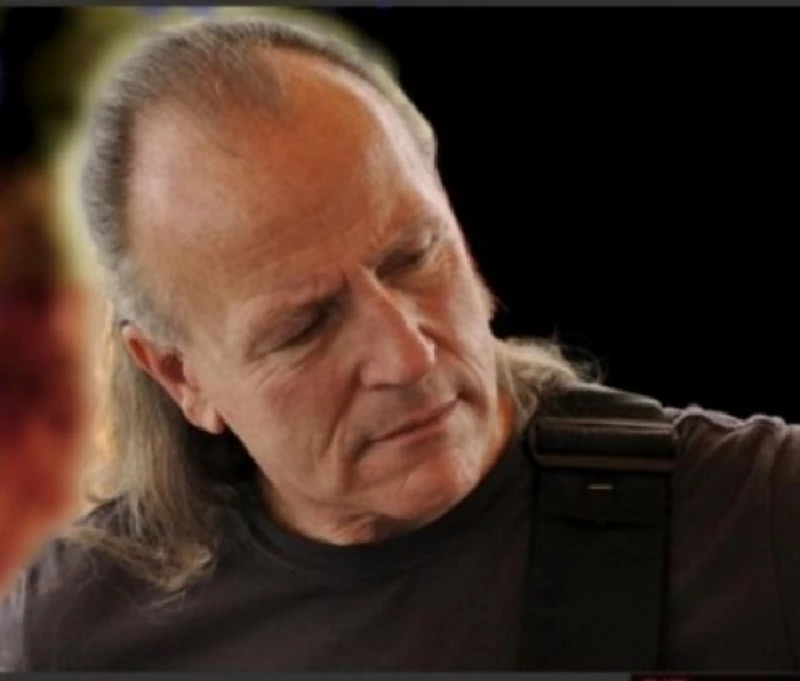

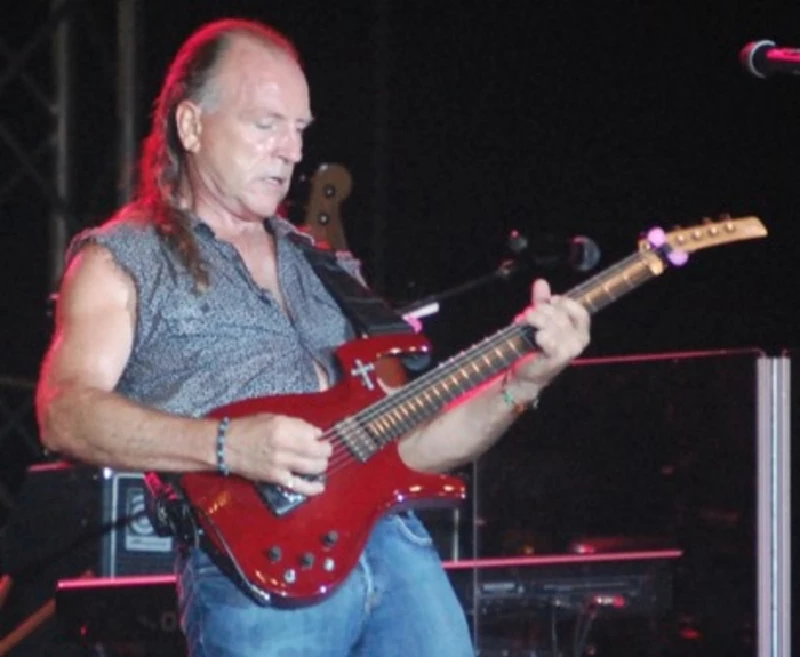
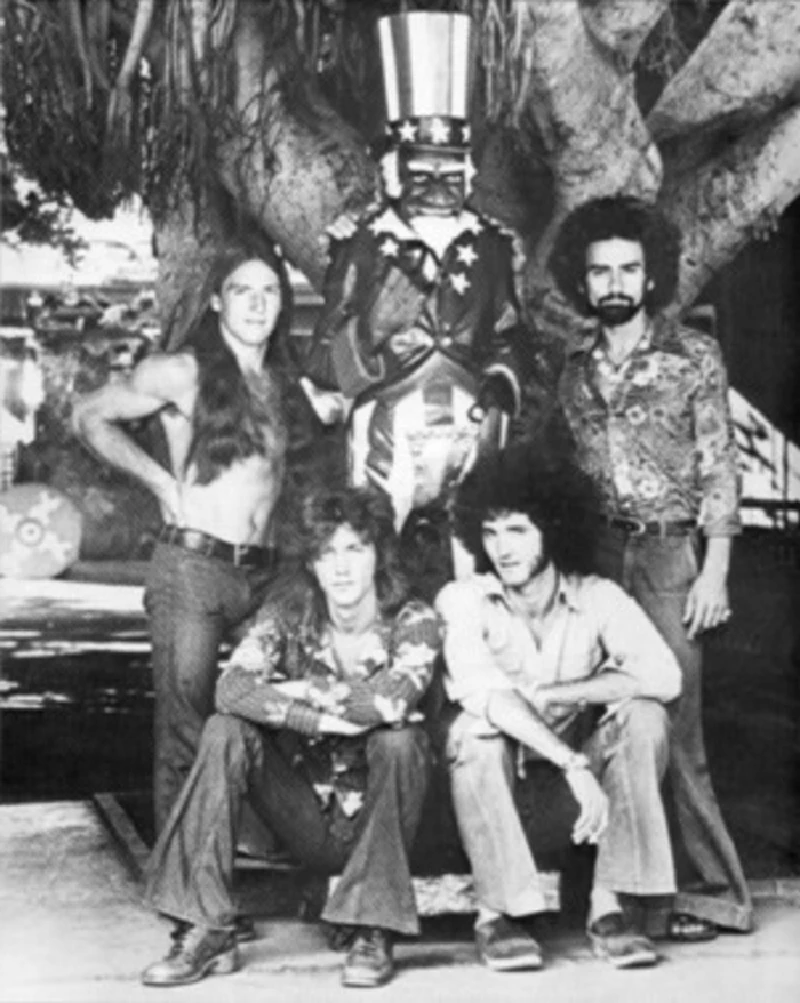
interviews |
|
Interview (2017) |
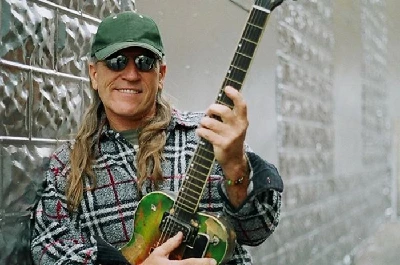
|
| Guitarist/singer-songwriter Mark Farner, former front man of Grand Funk Railroad and solo artist, discusses his musical legacy and desire to connect with veterans and Native Americans |
most viewed articles
current edition
Peter Doherty - Blackheath Halls, Blackheath and Palace Halls, Watford, 18/3/2025 and 21/3/2025Armory Show - Interview with Richard Jobson
Liz Mitchell - Interview
Lauren Mayberry - Photoscapes
Deb Googe and Cara Tivey - Interview
Max Bianco and the BlueHearts - Troubadour, London, 29/3/2025
Garfunkel and Garfunkel Jr. - Interview
Maarten Schiethart - Vinyl Stories
Clive Langer - Interview
Sukie Smith - Interview
previous editions
Heavenly - P.U.N.K. Girl EPBoomtown Rats - Ten Songs That Made Me Love....
Trudie Myerscough-Harris - Interview
Doris Brendel - Interview
Beautiful South - Ten Songs That Made Me Love...
Dwina Gibb - Interview
Pulp - Ten Songs That Made Me Love...
Kay Russell - Interview with Kay Russell
Barrie Barlow - Interview
Sound - Interview with Bi Marshall Part 1
most viewed reviews
current edition
Davey Woodward - Mumbo in the JumboNigel Stonier - Wolf Notes
Wings - Venus and Mars
Kate Daisy Grant and Nick Pynn - Songs For The Trees
Only Child - Holy Ghosts
Neil Campbell - The Turnaround
Philip Jeays - Victoria
Darkness - Dreams On Toast
Suzanne Vega - Flying With Angels
Charles Ellsworth - Cosmic Cannon Fodder
Pennyblackmusic Regular Contributors
Adrian Janes
Amanda J. Window
Andrew Twambley
Anthony Dhanendran
Benjamin Howarth
Cila Warncke
Daniel Cressey
Darren Aston
Dastardly
Dave Goodwin
Denzil Watson
Dominic B. Simpson
Eoghan Lyng
Fiona Hutchings
Harry Sherriff
Helen Tipping
Jamie Rowland
John Clarkson
Julie Cruickshank
Kimberly Bright
Lisa Torem
Maarten Schiethart